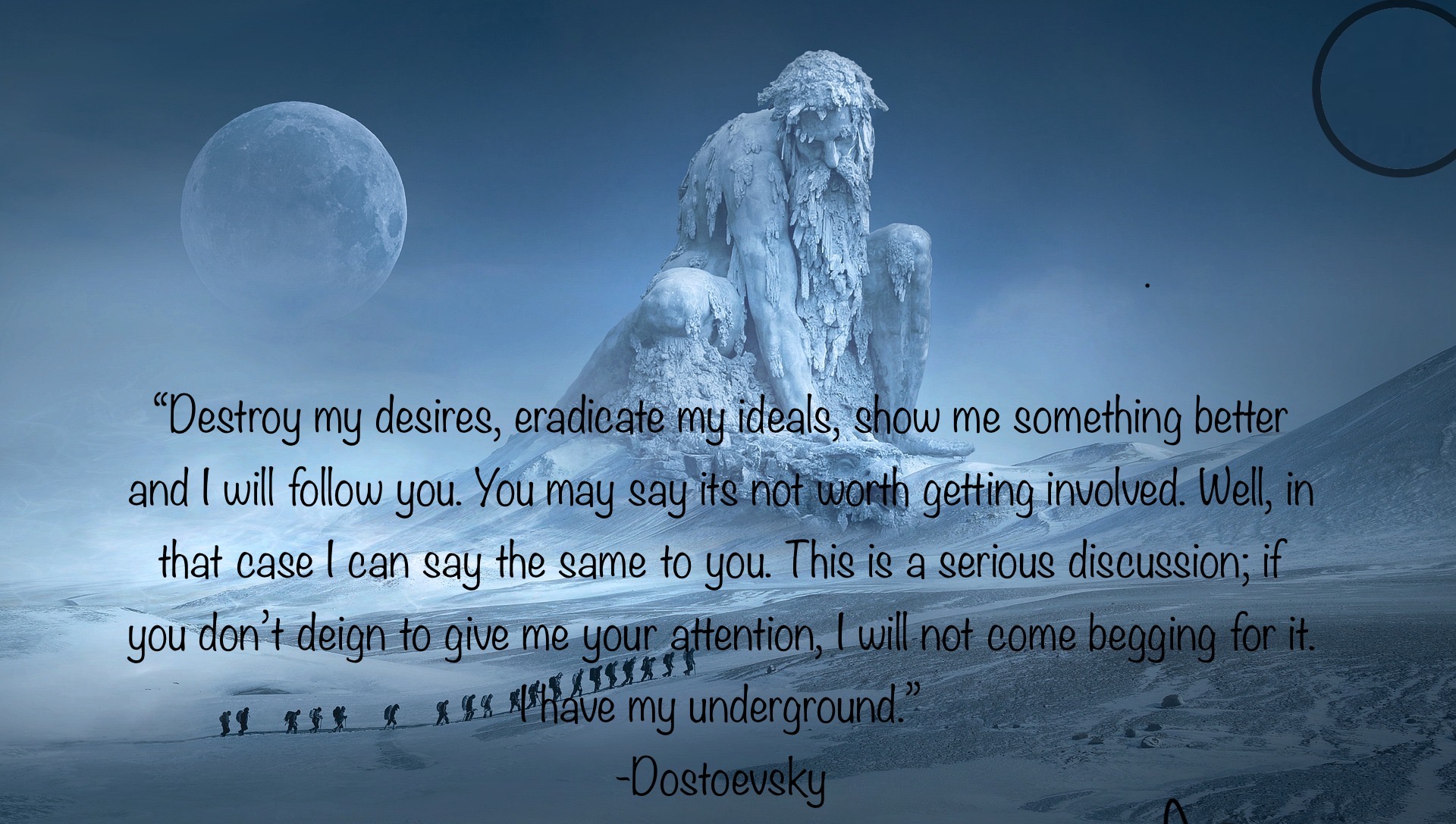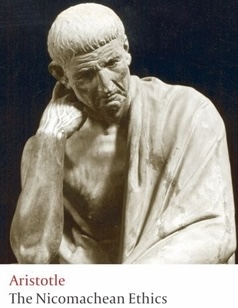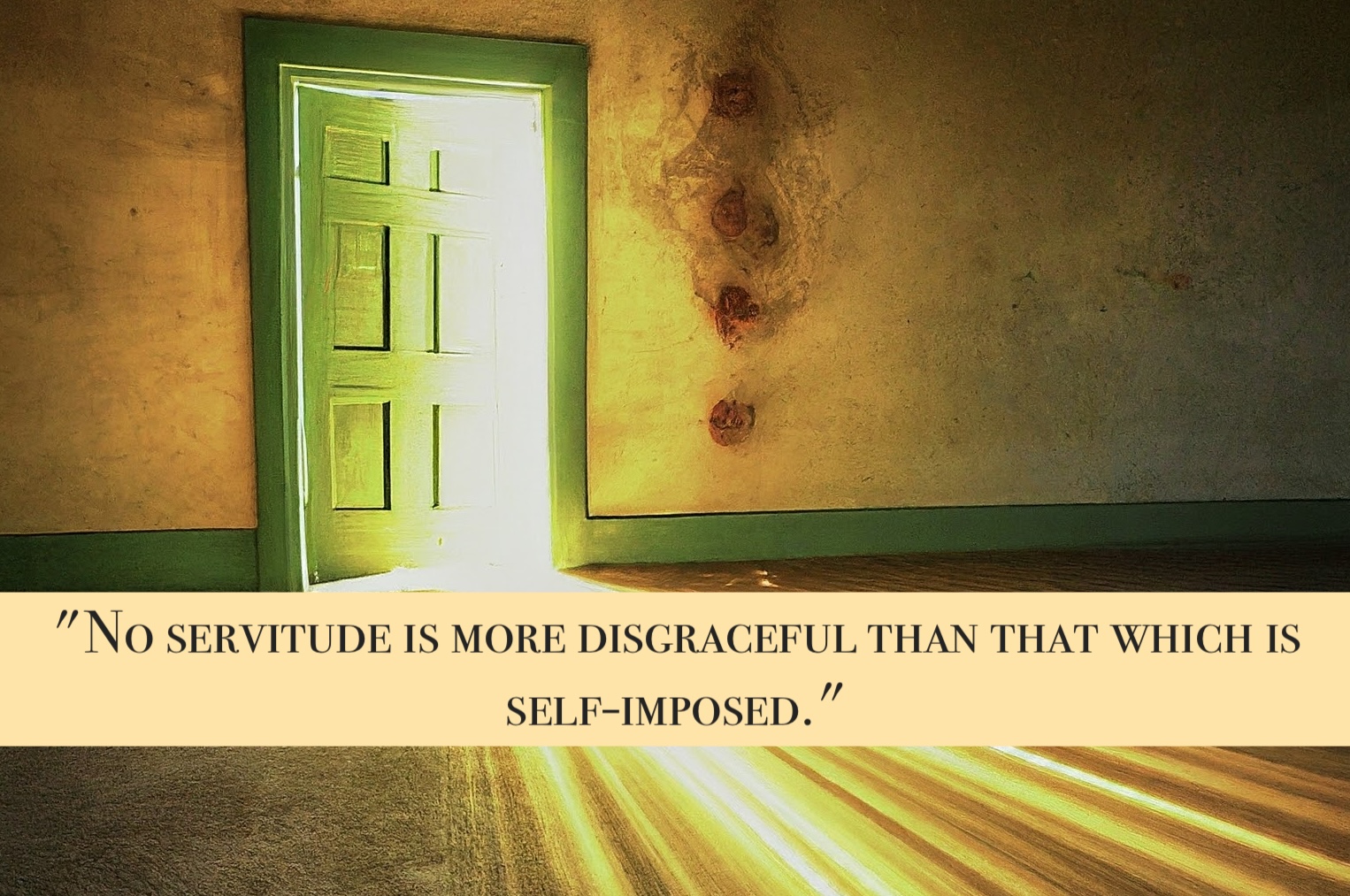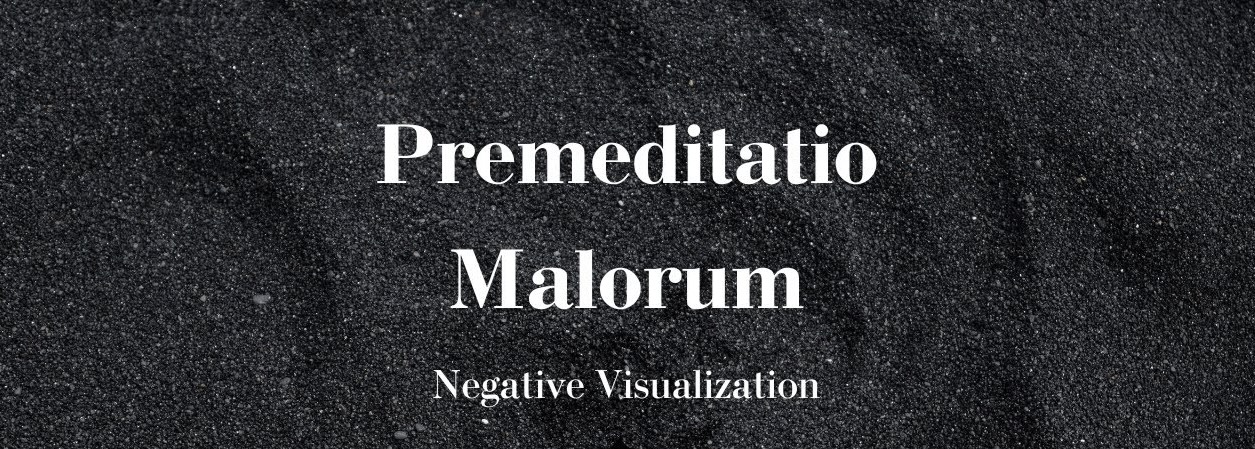On That which Concerns Everyone

Just finished reading Dostoevsky's "Notes from Underground" for the second time. I believe it's astonishing and reveals the dark reality of all of us and all of our human history. Using Underground Man as a 'anti-hero', the idea of human desires and human nature and the rationality is expressed as a critique to radical ideology.
On power to make own decision
"All man need is independent volition, whatever that independence volition might cost and what ever it might lead."
It made me think that human beings do not always do what is best in their own interests or what is advantageous to them. But instead risk everything they have to use their right to desire to get something ridiculous. We do this just for the sake of using our right to make the decision. The pure nonsense choice is just our stupidity. And the reason? Its this:
"The reason why we sometimes desire pure nonsense is that in our stupidity we see in that nonsense the easiest route to achieving some kind of previously assumed advantage..."
Faced to utilitarianism, man can do unproductive and ugly things merely to prove that you cannot predict free will, so it is totally free.
On consciousness as a disease
"I assure you, gentlemen, that to be excessively conscious is a disease, a real, full-blown disease."
Our modern culture provides too much consciousness to human beings and that this over-consciousness is a disease, while having less consciousness or even none at all is far superior and is also sufficient for everyday needs. While the man of action is spontaneous and he never gets trapped into decision making.
"...So, it's precisely this kind of spontaneous man whom I consider real, normal person, such as tender Mother Nature herself wished to see him as she lovingly brought him into being on this earth.."
For this spontaneous man "twice two makes four", but the conscious man desires "twice two as five". To get this he risks everything. In other words, for the rational man, the rule that two plus two equals four angers him, he wants the freedom to say two plus two equals five.
On the reality of Human nature
I have a friend... Oh, gentlemen! He's a friend of yours too and in fact to whom he is not a friend? When he prepares for any undertaking this gentleman immediately explains to you, elegantly and clearly, exactly how he must act in accordance with the laws of reason and truth. What is more, he will talk to you with excitement and passion of the true normal interests of man; with irony he will upbraid the short-sighted fools who do not understand their own interests, nor the true significance of virtue; and, within a quarter of an hour, without any sudden outside provocation, but simply through something inside him which is stronger than all his interests, he will go off on quite a different tack—that is, act in direct opposition to what he has just been saying about himself, in opposition to the laws of reason, in opposition to his own advantage, in fact in opposition to everything... I warn you that my friend is a compound personality and therefore it is difficult to blame him as an individual. The fact is, gentlemen, it seems there must really exist something that is dearer to almost every man than his greatest advantages, or (not to be illogical) there is a most advantageous advantage (the very one omitted of which we spoke just now) which is more important and more advantageous than all other advantages, for the sake of which a man if necessary is ready to act in opposition to all laws; that is, in opposition to reason, honour, peace, prosperity—in fact, in opposition to all those excellent and useful things if only he can attain that fundamental, most advantageous advantage which is dearer to him than all.
For all human this is the tragedy. We don't do what we intend to do. Because there arrives something inside of us, that which prevents us from doing thing as we planned. Maybe it is the comfort (is a disease) or may be we are distracted by distractions.
On deep understanding of the World and the Civilization
The purpose of the civilization is to develop in man the sensations of being less sensitive and being accustomed to bloodshed.
Civilization develops in man only the many sidedness of his sensations and decidedly nothing more. And through the development of this many-sidedness man may advance still further to the stage where he will find pleasure in bloodshed.
Ironically, this explains our present world where the powerful and the civilized nations are involving in wars and are accustomed to bloodshed.
"Have you ever noticed that he most refined shedders of blood have been almost always the most highly civilized gentlemen, to whom all the various Attilas and Stenka Razins could not have held a candle? –and if they are not so outstanding as Attila and Stenka Razin, it is because they are too often met with, too ordinary, too familiar. At least, if civilization has not made man more bloodthirsty, it has certainly made him viler in his thirst for blood than he was before. Before, he saw justice in bloodshed and massacred, if he had to, with quiet conscience; now, although we consider bloodshed an abomination, we engage in it more than ever. Which is worse? Decide for yourselves. They say that Cleopatra (excuse my taking an example from Roman history) liked to stick golden pins into the breasts of her slaves, and took pleasure in their screams and writhings. You will say that that was in barbarous times, comparatively speaking; that even today the times are barbarous because (again speaking comparatively) pins are still being thrust into people; and that even now man, although he has learnt to see more clearly than in the days of barbarism, is still far from having grown accustomed to acting as reason and science direct. but all the same you are quite sure that he will inevitably acquire the habit, when certain bad old habits have altogether passed away, and common sense and science have completely re-educated and normally direct human nature. You are convinced that then men will of their own accord cease to make mistakes and refuse, in spite of themselves, as it were, to make a difference between their volition and their normal interests."
History has no reason and it cannot be explained by it. "In short, anything can be said of world history, anything conceivable even the most disordered imagination. There is only one thing that you can’t say – that it had anything to do with reason."
On reason and the ungratefulness of the man
Reason only satisfies man's rational faculty. But since man desires true volition, he uses this just to prove himself as not the keys of piano but a man of desires (whatever it maybe...).
Shower upon him every earthly blessing, drown him in a sea of happiness, so that nothing but bubbles of bliss can be seen on the surface; give him economic prosperity, such that he should have nothing else to do but sleep, eat cakes and busy himself with the continuation of his species, and even then out of sheer ingratitude, sheer spite, man would play you some nasty trick. He would even risk his cakes and would deliberately desire the most fatal rubbish, the most uneconomical absurdity, simply to introduce into all this positive good sense his fatal fantastic element. It is just his fantastic dreams, his vulgar folly that he will desire to retain, simply in order to prove to himself—as though that were so necessary—that men still are men and not the keys of a piano, which the laws of nature threaten to control so completely that soon one will be able to desire nothing but by the calendar. And that is not all: even if man really were nothing but a piano-key, even if this were proved to him by natural science and mathematics, even then he would not become reasonable, but would purposely do something perverse out of simple ingratitude, simply to gain his point. And if he does not find means he will contrive destruction and chaos, will contrive sufferings of all sorts, only to gain his point! He will launch a curse upon the world, and as only man can curse (it is his privilege, the primary distinction between him and other animals), may be by his curse alone he will attain his object—that is, convince himself that he is a man and not a piano-key!
On love with suffering
And why are you so firmly, so triumphantly, convinced that only the normal and the positive—in other words, only what is conducive to welfare—is for the advantage of man? Is not reason in error as regards advantage? Does not man, perhaps, love something besides well-being? Perhaps he is just as fond of suffering? Perhaps suffering is just as great a benefit to him as well-being? Man is sometimes extraordinarily, passionately, in love with suffering, and that is a fact. There is no need to appeal to universal history to prove that; only ask yourself, if you are a man and have lived at all.
Human are predominantly creative animal, and consciously striving for a goal. But we all are passionately fond of self-destruction and chaos. This suffering is the cause of consciousness and even though it is man's greatest misfortune, man love it and would not exchange it for any sort of gratification.
On the process and the end
Man being a creative animal condemned consciously to strive for a goal, yet we are fond of destruction and chaos.
"Man is a frivolous and incongruous creature, and perhaps, like a chess player, loves the process of the game, not the end of it. And who knows (there is no saying with certainty), perhaps the only goal on earth to which mankind is striving lies in this incessant process of attaining, in other words, in life itself, and not in the thing to be attained, which must always be expressed as a formula, as positive as twice two makes four, and such positiveness is not life, gentlemen, but is the beginning of death."
Man loves progressing towards goals but not quite reaching it.




Leave a Reply
You must be logged in to post a comment.